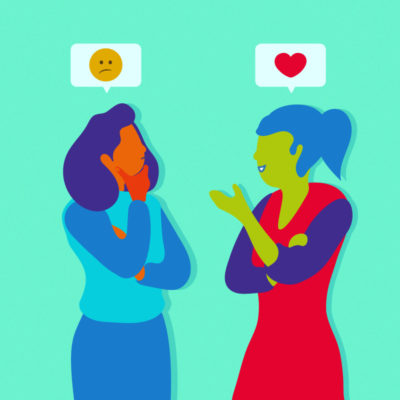Talking about sexual harassment is hard, nearly as hard as talking about sexual assault or rape. We get it wrong all the time. We share uninformed or misinformed opinions, we let our fears and ignorance prevent us from listening to others, and we trample on people’s raw emotions.
It’s unfortunate that sexual violence is now a political issue because it just makes it harder to solve the problem. When it’s political, we all make decisions based on entrenched loyalties and beliefs instead of evidence, facts, and human compassion. When it’s political, it is tribal and tribes are often at war.
Eighty-one percent of women have experienced sexual harassment. One out of every six American women has been raped or survived a rape attempt, and a violent sexual attack occurs every 98 seconds in this country. We all know that’s wrong and something must be done. We know that.
I’m sure I don’t have to remind you of your love for a daughter, sister, mother, or friend to stir your outrage that so many people (mostly women) are attacked and violated every day in our nation.

Look around you. Really look at the women around you, serving you coffee and working on their laptops and driving their cars and walking their dogs. Look at them and tell me they don’t deserve to feel safe as they go about their lives, that they don’t deserve to get through a day at work without being propositioned for sex or groped. This isn’t about your daughter, it’s about human beings who are threatened and hurt every single day in our country.
We share a common goal: to protect people from sexual harassment and assault. Our goal is to keep people safe from predators and abusers. Up to now, we have fallen so far short of that goal that we should feel some shame. We have had many opportunities to protect young women and we have chosen not to.
Let’s keep that common goal in mind whenever we talk about sexual violence. Let’s remember that we are all vulnerable human beings and the worst among us will always try to take advantage of people with less power.
That means that when someone talks about protecting people from sexual violence, it is incredibly inappropriate to say that we must also protect young men from false accusations.
I understand that, for many, that response is rooted in honest fear. I have a son and I love him with every ounce of my being. I don’t want anything terrible to happen to him, especially if it’s undeserved.
However, I am no more afraid of false accusations of rape than I am of shark attack. It can happen, but it’s incredibly unlikely. My son is more likely to die from fireworks, lightning, or stroke than a shark attack. He is also more likely to be sexually assaulted than to be falsely accused of it.
About seven percent of accusations of rape and other sex charges are determined to be false. On the other hand, only about 40% of rapes are ever reported and only half of those lead to prosecution. People charged with sexual violence are less likely to go to jail than other criminals. Out of 1,000 alleged rapes, only six perpetrators will ever spend time behind bars and, as in the case of Brock Turner, that time is often very short.
That’s not to say that we can’t have empathy for men like Brian Banks, who spent years behind bars before his accuser admitted she lied about being raped. I’m not saying, of course, that we shouldn’t be careful when we evaluate accusations of this kind. Our justice system puts innocent people behind bars all the time. That’s a subject worthy of discussion, but it’s not an appropriate response to concerns about sexual violence.
Bringing this up every time people beg for compassion for victims is like saying, “But what about compassion for all the muggers, because my son might be accused of mugging someone someday.”
This tactic is a form of “whataboutism,” a logical fallacy that attempts to draw attention away from one wrong by calling attention to another. As Wikipedia explains, whataboutism charges people “with hypocrisy without directly refuting or disproving their argument. It’s a strategy that’s particularly associated with Soviet Russia. The Soviets would respond to American criticism of their government by saying, “Are you still lynching [black people]?”
Journalist Michael Bernard wrote that whataboutism “dictates that no one must get away with an attack on the Kremlin’s abuses without tossing a few bricks at South Africa, no one must indict the Cuban police State without castigating President Park [of South Korea], no one must mention Iraq, Libya or the PLO without having a bash at Israel.”
Today, no one can talk about believing victims without being reminded of false accusations.
Listen, let’s be honest and human with each other for a moment. There is a high probability that your daughters and sisters and wives have been assaulted or will be assaulted. That’s the tragic truth. I have to assume there is a low probability that your kid will assault someone and a minuscule chance he’ll be falsely accused.
Forget politics. Let the politicians on both sides posture and pontificate and obfuscate the facts. Just remember that politics, at heart, are really about people. They should reflect how we want to live and how we think all humans should be treated. Some politicians have forgotten that, but we don’t have to make the same mistake.

